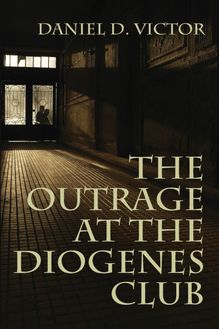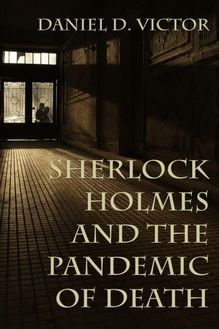-
 Univers
Univers
-
 Ebooks
Ebooks
-
 Livres audio
Livres audio
-
 Presse
Presse
-
 Podcasts
Podcasts
-
 BD
BD
-
 Documents
Documents
-
- Cours
- Révisions
- Ressources pédagogiques
- Sciences de l’éducation
- Manuels scolaires
- Langues
- Travaux de classe
- Annales de BEP
- Etudes supérieures
- Maternelle et primaire
- Fiches de lecture
- Orientation scolaire
- Méthodologie
- Corrigés de devoir
- Annales d’examens et concours
- Annales du bac
- Annales du brevet
- Rapports de stage
La lecture à portée de main
Vous pourrez modifier la taille du texte de cet ouvrage
Découvre YouScribe en t'inscrivant gratuitement
Je m'inscrisDécouvre YouScribe en t'inscrivant gratuitement
Je m'inscrisEn savoir plus
Vous pourrez modifier la taille du texte de cet ouvrage
En savoir plus

Description
Informations
| Publié par | Andrews UK |
| Date de parution | 27 août 2021 |
| Nombre de lectures | 0 |
| EAN13 | 9781787057944 |
| Langue | English |
Informations légales : prix de location à la page 0,0150€. Cette information est donnée uniquement à titre indicatif conformément à la législation en vigueur.
Extrait
Sherlock Holmes and the Pandemic of Death
Daniel D. Victor, Ph.D.
Published in 2021 by
MX Publishing
www.mxpublishing.com
Digital edition converted and distributed by
Andrews UK Limited
www.andrewsuk.com
Copyright © 2021 Daniel Victor
The right of Daniel Victor to be identified as the author of this work has been asserted in accordance with the Copyright, Designs and Patents Act 1988.
All rights reserved. No reproduction, copy or transmission of this publication may be made without express prior written permission. No paragraph of this publication may be reproduced, copied or transmitted except with express prior written permission or in accordance with the provisions of the Copyright Act 1956 (as amended). Any person who commits any unauthorised act in relation to this publication may be liable to criminal prosecution and civil claims for damage.
All characters appearing in this work are fictitious. Any resemblance to real persons, living or dead, is purely coincidental.
Cover design Brian Belanger
www.belangerbooks.com
Dedicated to all who suffered during the COVID-19 Pandemic, to the health-care workers who treated them, to the front-line workers who made daily living possible, and to the scientists who helped develop a vaccine to end it.
Acknowledgements
Many thanks to Mark Holzband who inspired my thinking; without his idea this story would never have materialized. Thanks also to Seth Victor, whose research led him, his brother, and me to Sauk Centre, Minnesota, and the home of Sinclair Lewis. Thanks to Ethan Victor, whose insightful suggestions about writing are helpful across all genres. Thanks to Richard Evidon for his always perceptive opinions on music, to Barry Smolin and to Sandy Cohen for their valuable editorial advice, to Gabriella Rader for her encouragement, and to Judith Grabiner for her continued help and motivation. And, as always, thanks to Norma Silverman for her patience, support, and love.
[The] very exercise of reflecting on an epidemic from within it is one of the coping mechanisms to which humans have repeatedly turned to make sense of our experiences during these difficult moments.
--Hannah Marcus
“Revisiting the Plague
in the Age of Galileo”
Isis
December 2020
A note on the text:
All headnotes, footnotes, and chapter titles were added to Dr. Watson’s manuscript by the editor, as was the title of the work itself.
Sherlock Holmes and the Pandemic of Death
[Being another manuscript found in the dispatch box of Dr. John H. Watson in the vault of Cox and Co., Charing Cross, London]
Book Seven in the Series,
“Sherlock Holmes and the American Literati”
As Edited By
Daniel D. Victor, Ph.D.
Chapter One
The American Caller
STAND BACK FROM THE PAGE!
And disinfect yourself.
-- Wilfred Owen
In a Purposely Exaggerated
Letter to his Mother
24 June 1918
Few and far between were the occasions when my friend and colleague, Mr. Sherlock Holmes, expressed concern about my well-being. I savour them all.
Astute readers will remember that after I had been shot by the American gangster Killer Evans, Holmes rushed to my side, genuinely fearing I had been wounded more severely than I had. When Holmes had experimented with a noxious poison called the Devil’s-foot root and almost killed us both in Cornwall, he admitted most gratifyingly that his behaviour was unbecoming a friend. Nor shall I forget his deeply-appreciated confession to feeling “lost” without his Boswell. I treasure all these expressions of closeness, yet only in the case related to the frightening influenza of 1918 can I recall that Holmes actually backed away from an investigation in order to gainsay my guilt.
Allow me to state from the beginning that even the most trifling of references to the ghastly Spanish flu—or the Spanish Lady, as some more crudely call it—arouse in me the deepest feelings of remorse. As a consequence, it is little wonder that readers will search my narratives in vain for any specific references to that terrible disease.
Nor am I alone in such thinking. Although the worst of the pandemic coincided with the end of the Great War, readers are similarly hard-pressed to find mention of the flu’s deadly toll in the plethora of histories and memoirs that recount the end of the hostilities.
I for one have found little mystery in the disinclination among such writers to revisit the terror. To me, it has always seemed obvious that those who physically survived the pandemic of ’18 purposely erased from their collective memory the dread associated with having confronted so lethal a disease. It was as if the act of forgetting began as soon as the dying had ended.
Unfortunately, my own case was even more dismal. For me, the horror did not stop with the ebbing of the flu; I had an additional abhorrence to face. For entwined with the tragic stories raised by the disease was the relentless guilt I suffered for having believed that through sheer stupidity I had caused the senseless death of a friend.
How annoying then to acknowledge the arrival at my door of a determined American writer whose search for details about a fatal disease inadvertently resurrected the memories I had worked so hard to repress, memories deleterious enough to eclipse not only the mistakes for which I held myself accountable, but also for the greater horrors suffered by countless others.
Neither the falsely-presumed demise of Holmes at the Reichenbach Falls nor even the death of my beloved wife Mary had caused me to spiral downward as did the reckless belief in my own malfeasance during the pandemic, a malfeasance which the American visitor so persistently forced me to confront.
***
In May of 1926, the American writer, Sinclair Lewis, refused his country’s Pulitzer Prize for Best Novel. Arguing that the lure of such awards might entice other authors to alter or modify their works for the primary purpose of winning just such a prize, Lewis rejected the honour. As he explained in his letter to the Pulitzer committee, the desire to win an award like the one he was rejecting encourages American writers to remain “safe, polite, obedient, and sterile.”
To be sure, some critics suggest that Lewis’s true motivation was his anger at the Pulitzer committee for not having honoured his novel Main Street years earlier. Yet one must also acknowledge that many of his contemporaries continue to regard Lewis’s rebelliousness as an act of literary courage.
I certainly do. In fact, though not precisely a demonstration of defiance on my part, I have no doubt that it was Lewis’s show of strength that provided me the will to make public the lingering shame I had steadfastly associated with the Spanish flu. In fact, it was but a month after the American’s bold rejection of the Pulitzer that I set about to compose this very narrative.
Lewis’s personal involvement in my evolution actually began on a crisp afternoon in early March of ’23, three years prior to his controversy with the Pulitzer committee. The insistent clanging of the electric bell at my Queen Anne Street door that day caused my young housekeeper, Miss Ross, to hurry in response.
Despite the decline in my hearing, I happened to be leaning on my stick by the entry hall as she opened the door and was thus in an advantageous position to hear an American accent proclaim, “I want to see Dr. John Watson.”
“Who should—?” Miss Ross attempted to ask, but the poor woman could not complete the question.
“I am Sinclair Lewis,” the man at the door interrupted, enunciating each word as if the appellation were an Open Sesame.
Although his identity meant nothing to Miss Ross, I immediately recognized the name. After all, at that very moment, two of the man’s satirical novels, Main Street and Babbitt, were earning international fame for the prickly American.
“Allow me,” I told the housekeeper.
The dependable Miss Ross had been working at Queen Anne Street long enough to tolerate the strange characters—most commonly, personages associated with earlier Holmes cases—who might come round. As a result, in such situations she would ask them in; inform me of their presence; and, as in this instance, immediately disappear.
I was about to invite the visitor to enter when, no sooner had Miss Ross vanished, than the tall and gangling fellow presumptuously stepped inside on his own. Wrapped as he was in a long, black cape, he cut quite the memorable figure. What is more, when he raised a hand in salutation and the cape fell open, I could clearly see its bright purple lining as well as the smartly-tailored black suit, blue bowtie, and white spats that completed his rakish attire.
Equally riveting was the man’s pink and pock-marked face. On its right side there appeared a burn-like scar—the result, I should imagine, of a medical attempt to resolve an extreme case of acne. He appeared to be close to forty; and with his ice-blue, gimlet eyes and tufts of ginger hair asserting themselves from under a flat cap of black-and-white tweed, he presented quite the striking image.
“Good afternoon, Mr. Lewis,” I said, angling sideways whilst still foolishly trying to usher him in.
“Thanks, John,” he addressed me with shocking American familiarity. Removing his cap to reveal his carrot-coloured hair, he added, “They call me Red.”
My lanky visitor followed me into the study—actually, my ground-floor library in which I had repositioned my upstairs desk. The move was a way to minimize the need for stair-climbing in light of my gamy knee. I took my place in the turning-chair behind the desk and offered Lewis one of the tw
-
 Univers
Univers
-
 Ebooks
Ebooks
-
 Livres audio
Livres audio
-
 Presse
Presse
-
 Podcasts
Podcasts
-
 BD
BD
-
 Documents
Documents
-
Jeunesse
-
Littérature
-
Ressources professionnelles
-
Santé et bien-être
-
Savoirs
-
Education
-
Loisirs et hobbies
-
Art, musique et cinéma
-
Actualité et débat de société
-
Jeunesse
-
Littérature
-
Ressources professionnelles
-
Santé et bien-être
-
Savoirs
-
Education
-
Loisirs et hobbies
-
Art, musique et cinéma
-
Actualité et débat de société
-
Actualités
-
Lifestyle
-
Presse jeunesse
-
Presse professionnelle
-
Pratique
-
Presse sportive
-
Presse internationale
-
Culture & Médias
-
Action et Aventures
-
Science-fiction et Fantasy
-
Société
-
Jeunesse
-
Littérature
-
Ressources professionnelles
-
Santé et bien-être
-
Savoirs
-
Education
-
Loisirs et hobbies
-
Art, musique et cinéma
-
Actualité et débat de société
- Cours
- Révisions
- Ressources pédagogiques
- Sciences de l’éducation
- Manuels scolaires
- Langues
- Travaux de classe
- Annales de BEP
- Etudes supérieures
- Maternelle et primaire
- Fiches de lecture
- Orientation scolaire
- Méthodologie
- Corrigés de devoir
- Annales d’examens et concours
- Annales du bac
- Annales du brevet
- Rapports de stage









